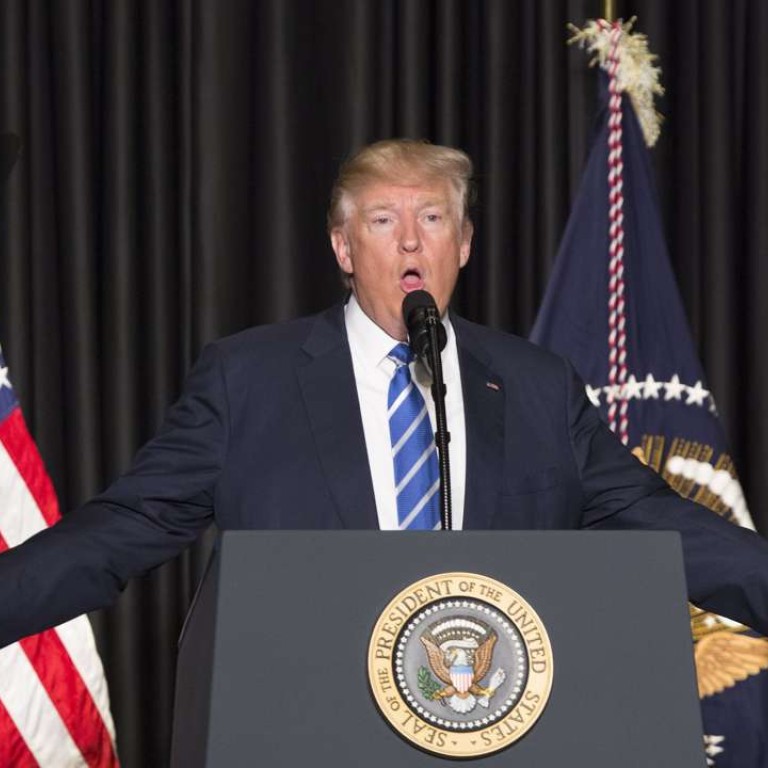
Trump slams courts as ‘political’ and not doing ‘what’s right’ when blocking his travel ban
US President Donald Trump has lashed out at federal judges, calling them “so political” as an appeals court mulls whether to reinstate his controversial travel ban on refugees and people from seven mainly Muslim nations.
“I think our security is at risk today,” Trump told a meeting of county sheriffs from around the US, as he defended his executive order, which was blocked nationwide by the federal courts a week after it went into effect.
“I don’t ever want to call a court biased, so I won’t call it biased and we haven’t had a decision yet. But courts seem to be so political, and it would be so great for our justice system if they would be able to read a statement and do what’s right,” he said.
The decision whether to reinstate Trump’s travel ban is up to a federal appeals court after a contentious hearing in which the judges hammered away at the administration’s motivations for the ban, but also directed pointed questions to a lawyer or two states trying to overturn it.
It was unclear which way the three judges of the San Francisco-based 9th Circuit Court of Appeals would rule, though legal experts said the states appeared to have the edge.
“I’m not sure if either side presented a compelling case, but I certainly thought the government’s case came across as weaker,” said Stephen Vladeck, a professor at the University of Texas School of Law.
Any ruling could be appealed at the US Supreme Court.
The appeals court challenged the administration’s claim that the ban was motivated by terrorism fears, but it also questioned the argument of a lawyer challenging the executive order on grounds that it unconstitutionally targeted Muslims.

At his meeting with the sheriffs, Trump insisted his immigration order was “done for the security of our nation”. He said it was written “beautifully”, was within his executive authority and that “a bad high school student would understand this”.
The contentious hearing before three judges focused narrowly on whether a restraining order issued by a lower court should remain in effect while a challenge to the ban proceeds. But the judges jumped into the larger constitutional questions surrounding Trump’s order, which temporarily suspended the nation’s refugee programme and immigration from seven mostly Muslim countries that have raised terrorism concerns.
The hearing was conducted by phone – an unusual step – and broadcast live on cable networks, newspaper websites and various social media outlets. It attracted a huge audience, with more than 130,000 alone tuning into the court’s YouTube site to listen in.
Judge Richard Clifton, a George W. Bush nominee, asked a lawyer representing Washington state and Minnesota what evidence he had that the ban was motivated by religion.
The two states are suing to invalidate the ban.
“I have trouble understanding why we’re supposed to infer
religious animus when in fact the vast majority of Muslims would not be affected.”
Only 15 per cent of the world’s Muslims are affected, the judge said, citing his own calculations. He added that “concern for terrorism from those connected to radical Islamic sects is hard to deny”.
Noah Purcell, Washington state’s solicitor general, cited statements by Trump calling for a ban on the entry of Muslims to the US. He said states did not have to show every Muslim is harmed, only that the ban was motivated by religious discrimination.
Additional reporting by Agence France-Presse

